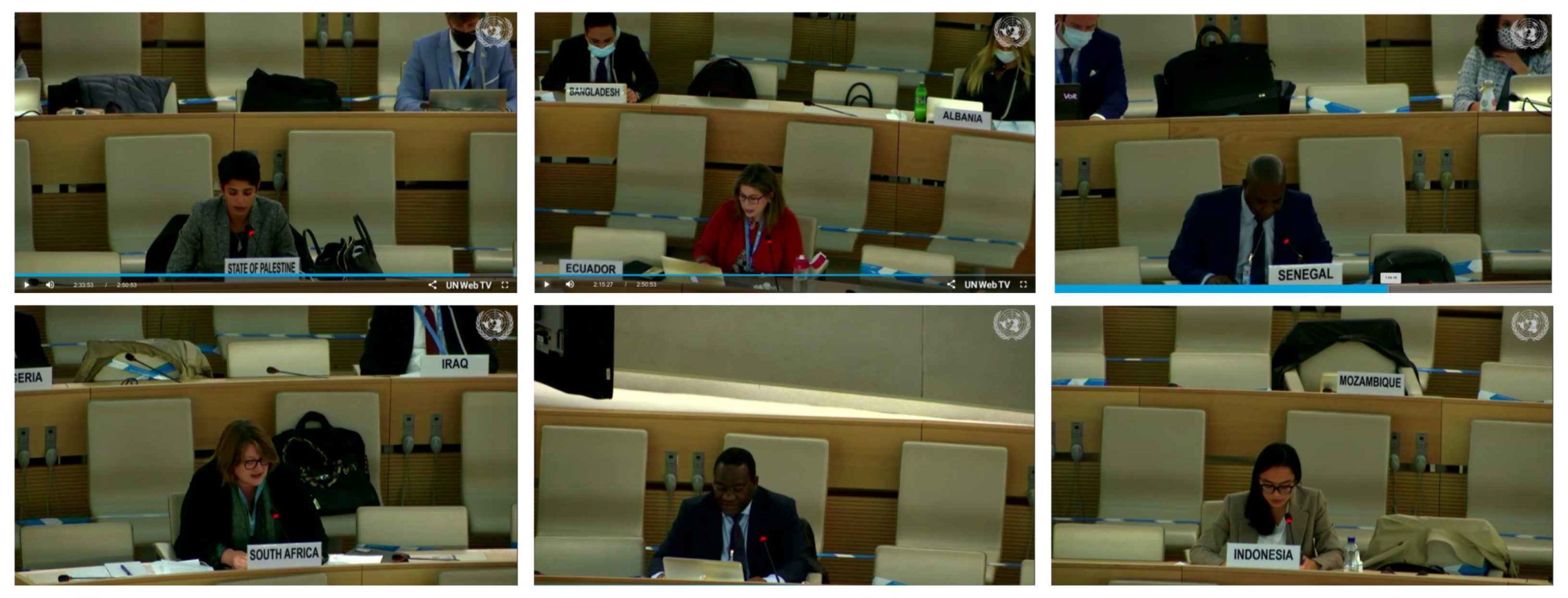The sixth session of the UN Human Rights Council’s Open-ended Intergovernmental working group (OEIGWG) on Transnational corporations (TNCs) and Other Business Enterprises, is underway in Geneva this week (26 to 30 October).
Established in 2014, the mandate of this working group is to elaborate an international legally binding instrument to regulate, in international human rights law, the activities of transnational corporations and other business enterprises.
La Via Campesina and other civil society actors, organised under the banner of the Global Campaign to Reclaim Peoples Sovereignty, Dismantle Corporate Power and Stop Impunity (Global Campaign), are following and intervening in the proceeds virtually this week, due to the COVID-19 restrictions that are in place.
What is at stake this week?
In August 2020, the OEIGWG Presidency published the 2nd Revised Draft of the UN Binding Treaty. The Global Campaign’s analysis is that this is a weak, watered-down version of its previous iteration. It has also raised concerns about the virtual nature of participation of the sixth session, which will severely limit affected people’s ability to participate and express their concerns and demands.
While intervening during the session on Monday, 26 October, Tchenna Maso from La Via Campesina (MAB, Brazil) echoed this concern. She warned that the second draft does not reflect the purpose of the mandate created by resolution 26/9 and therefore is moving away from the path of developing a robust, ambitious and effective treaty. “The content of Resolution 26/9 is evident on this subject,” she said. “the objective is to develop a legally binding instrument to regulate the activities of transnational corporations and other business enterprises in international human rights. “
“Other companies” refers to all companies whose operational activities are transnational and do not apply to local companies registered under the relevant national legislation”, she reminded the working group.
The current draft, she added, no longer appears to be focused mainly on TNCs, but rather a general instrument focused on obligations of States concerning companies. Therefore the second draft, she informs, shifts the focus from the core of the problem – the impunity of TNCs at the and along its global value chains, made possible by the complex structures of transnational architecture that allows these entities evade democratic and legal control. “The mechanisms foreseen in the current project are insufficient mechanisms, which will hardly be able to successfully address the asymmetries of power and, will deny justice for those affected.”, Tchenna said.
Why is a Binding Treaty important in the current political context?
The pandemic has pushed nearly a billion people into hunger and extreme poverty. Yet, billionaires who run most of the transnational corporations increased their wealth by more than a quarter from April to July. Not surprisingly, those in the healthcare sector saw their total wealth rise by over 50%.
Several governments also monopolised the curfew and the lock-down measures imposed during the pandemic. Under the guise of reviving economic growth, many governments started diluting land and environment laws, labour and social security laws. They are enforcing these “corporate-friendly” measures with little or no consultation with the communities where the TNCs’ activities take place – very often rural. These measures will enable land grabs and violent evictions of people from their territories.
An internationally binding legal instrument is now even more essential for communities as a tool to seek justice when the laws in their own countries are being diluted under pressure from TNCs.
On Tuesday 27 October, 13h00 Geneva time, the Global Campaign will hold a virtual press conference. Register here.
This post is also available in Français.

